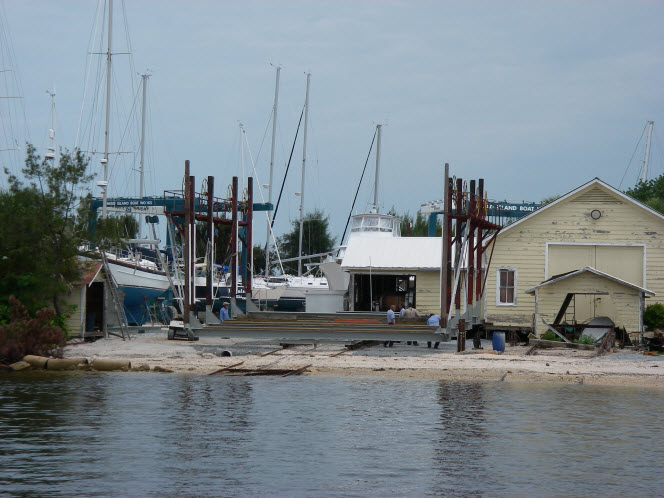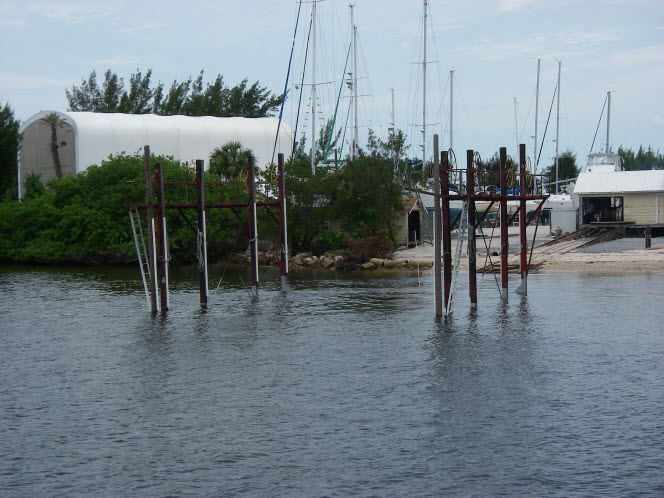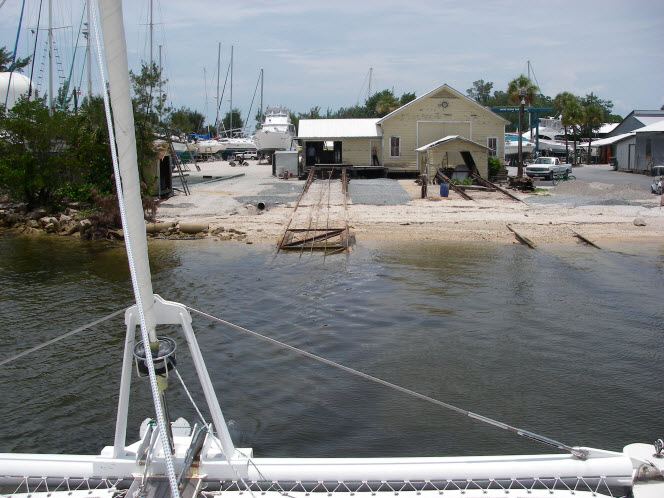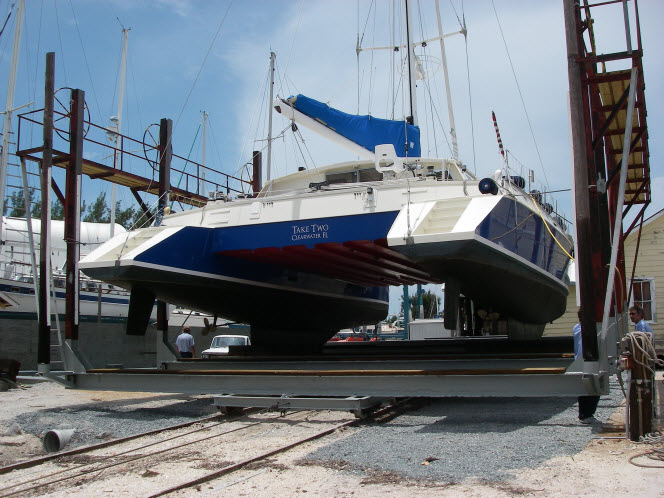We’re in the middle of a homeschooling unit about the scientific method. Conveniently, we’re also in the middle of a big family experiment. So here’s our lab write-up, of sorts.
Question: Are we ready to move aboard full-time?
Research:
1. We know how to live on the boat for short periods.
2. We love being on the water.
3. We’re tired of packing and unpacking all the time.
4. We can’t seem to maintain both a house and a boat.
5. We’re not that attached to our land life.
Hypothesis: We think we’re ready.
Experiment: Move aboard for one month, bringing the cats. See if we can work, do school and live without all our normal stuff and routines.
Results/Analysis:
1. I can’t take it all with me.
That I already knew. But after unloading all the stuff I packed for a month, I realized that I can’t take even a fraction of the stuff I thought I could. I brought ten changes of clothes for each person (that would be maximum allowable based on storage space) which allows for laundry flexibility. I brought a few days’ worth of fresh food stores and a 9×13” dish (which the boat didn’t have) but none of my “necessary” kitchen gadgets like the Vita-Mix or Food Saver. I brought everything I thought I would need for a month of boat-school, but left most of the math manipulatives, art supplies and other “necessary” homeschool items at home. The kids did not bring any extra toys or activities, and I did not pack very many books. Our large library at home may be the hardest thing to leave behind.
2. Living aboard is different than visiting.
We’ve been doing the weekend thing for a year now, but this really feels different. The first Monday morning was the worst, but it improved to better-than-normal after that. Since the boat is a weekend/play place for the kids and a relaxing place for the adults, it was hard at first to get into a normal working routine. Getting children to do handwriting when they’d rather be crabbing is like pulling teeth. And never-mind about keeping the two-year-old out of trouble while the others are doing schoolwork. Play-Doh and Duplo blocks only go so far. The trampolines and fishing rods are much more interesting, but could lead to an un-intended swim for the toddler (and whichever adult hears the splash first). And while I have always appreciated how easy a smaller space is to clean, I never realized how tidy it must be kept in order to keep it safe and chaos-free. One of the more pleasant realizations is that we are extremely comfortable and cozy here, and it’s so nice not to have to pack/unpack every few days. And the constant awareness of sea, sky, wind and wildlife adds patterns of beauty and wonder to every day.
3. It’s going to be a long time before the boat is “ready.”
Some people never leave for an extended cruise because the boat is never quite ready enough, but there are a few essential systems that must be operational before one goes out on the open ocean. Freshwater storage is one (we’re currently able to store 50 gallons instead of the usual 200, while Jay searches for the best liner/bladder for the newly epoxied tanks). Engines are another (time to figure out if they need repairing or replacing). Food preparation must not be forgotten—a cooler and freezer full of ice bottles work fine for the time being, but the system itself is both broken and inefficient (Jay has to build a fridge from scratch to do it well), and the stove/oven are ancient and must be replaced. Part of our experiment here is to see if we are able to go about our daily business surrounded by the mess of projects large and small. Like replacing hoses or pumps on the single working head, just to name one. This endeavor requires longsuffering and heroic patience.
4. We don’t need that much to be happy.
We have always striven to live simply, but living on a boat takes it to a new level. And we’re not even on the minimalist end of the spectrum. There are some (like Lin and Larry Pardy) who cruise the oceans of the world sans electricity, engines, pressured water or refrigeration. Granted, we don’t have a working fridge at the moment, but we have many, many comforts. We are quickly acclimatizing to not using the A/C (ask me again in August). I don’t miss my washer and dryer—doing laundry at the dock house isn’t that hard or inconvenient, and buying an electric washer for the boat adds up to a LOT of quarters, so we won’t do that until we get ready to leave leave. The kids need very few toys to keep them entertained. Books, games, puzzles, legos, cars, dolls and other small toys seem to do the trick quite well. Not that homeschooled children have that much play time anyway—there are always schoolwork and chores, not to mention spending time outside. Rainy days are tricky, and the occasional movie on the laptop saves the day. But I might go so far as to postulate that the less stuff we have, the happier we are.
5. It was hard to come home.
This is especially true as I began to feel confused about where home is. It was unexpectedly hard to come back to the house. The experiment was a success, for the most part. We still have a dilemma about the cats because they don’t fit into our long-term plans, but there’s no dilemma about us. We are happy on the water, living on the boat, at anchor or at the dock. I won’t go so far as to say we are ready, because that invites trouble, but we are as ready as we ever will be, and definitely willing. I found that I need very little to be happy, so coming home to a house full of things was, as one friend put it, like culture shock. We have so much stuff—and I have no idea how to sort through all of it and reduce it to what we can bring with us or store in a small unit. And even though I began months ago to give to friends some treasured items, I have yet to weed through every item in every room and decide where it goes. That is a daunting task. Furthermore, I miss seeing the sunset, feeling the gentle motion of the boat beneath me, being outside. We feel so alive on Take Two—it is a sensory feast to be on the water—so many sights and smells and feelings, so that I feel a bit closed in at the house. I can’t even tell you from which direction the wind is blowing.
Conclusion:
We have come a long way in a year: from our first sleepless night aboard exactly a year ago last Friday (we celebrated with root-beer floats) to feeling like strangers in our own house! I guess this means we are no longer dirt-dwellers and sea fever has truly infected us. Even though it’s going to be hard to say good-bye to our life here—to friends and family and to some treasured items (i.e. books), we will all be happy to move more permanently to our home on the water. If anybody out there is looking for a four-bedroom house in Clearwater, drop us a line…




